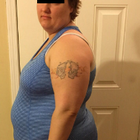Gastric Sleeve in Belgium
Search and Compare the Best Clinics and Doctors at the Lowest Prices for Gastric Sleeve in Belgium

Find the best clinics for Gastric Sleeve in Belgium
With Medijump you can browse 5 facilities offering Gastric Sleeve procedures in Belgium. The cheapest price available is $6,661 in Antwerp. And for the cheapest price globally, prices start from $777 in Egypt.
Gastric Sleeve in Antwerp
Price: $ 6,661
Egypt offers the best prices Worldwide
Price: $ 777
Belgium Surgery Services - Brussels, located in Lindendreef, Antwerp, Belgium offers patients Gastric Sleeve procedures among its total of 4 available procedures, across 1 different specialties. The cost of a Gastric Sleeve procedure ranges from £5,227 to £5,909, whilst the national average price is approximately £5,790. There are many specialists available at the Hospital, with 4 in total, and they are not accredited by any recognized accreditations institutes
Clinic Van Gucht, located in Lindendreef, Antwerp, Belgium offers patients Gastric Sleeve procedures among its total of 14 available procedures, across 2 different specialties. The cost of a Gastric Sleeve procedure ranges from £6,353 to £7,034, whilst the national average price is approximately £5,790. All procedures and treatments are undertaken by just a small team of specialists, with 2 in total at the Clinic, and they are accredited by Ziekenhuiswet / La loi sur les hôpitaux
Ballon Gastrique, located in Lindendreef, Antwerp, Belgium offers patients Gastric Sleeve procedures among its total of 5 available procedures, across 3 different specialties. Currently, there's no pricing information for Gastric Sleeve procedures at Ballon Gastrique, as all prices are available on request only, whilst the national average price is approximately $7,378. All procedures and treatments are undertaken by just a small team of specialists, with 2 in total at the Hospital, and they are not accredited by any recognized accreditations institutes
Direct Healthcare International Limited - Torhout, located in Lindendreef, Antwerp, Belgium offers patients Gastric Sleeve procedures among its total of 30 available procedures, across 11 different specialties. Currently, there's no pricing information for Gastric Sleeve procedures at Direct Healthcare International Limited - Torhout, as all prices are available on request only, whilst the national average price is approximately $7,378. All procedures and treatments are undertaken by just a small team of specialists, with 2 in total at the Hospital, and they are accredited by ICS - International College of Surgeons
Direct Healthcare International Limited - Antwerp, located in Lindendreef, Antwerp, Belgium offers patients Gastric Sleeve procedures among its total of 20 available procedures, across 9 different specialties. Currently, there's no pricing information for Gastric Sleeve procedures at Direct Healthcare International Limited - Antwerp, as all prices are available on request only, whilst the national average price is approximately $7,378. All procedures and treatments are undertaken by the lead specialist at the Hospital, and they are accredited by ICS - International College of Surgeons
- Home
- Belgium
Compare Before & After Photos of _procedure_photos.phpGastric Sleeve


Front view


Full-side view


Front view


Front view


Front view


Front view
WHY US?
At Medijump, we're making medical easy. You can search, compare, discuss, and book your medical all in one place. We open the door to the best medical providers worldwide, saving you time and energy along the way, and it's all for FREE, no hidden fees, and no price markups guaranteed. So what are you waiting for?

Free

Best Price

Widest Selection

Risk-Free
What you need to know about Gastric Sleeve in Belgium

The Gastric Sleeve procedure, also known as Vertical Sleeve Gastrectomy or Sleeve Surgery, is a minimally invasive surgical method designed to advocate weight loss and promote healthier living. It garners acclaim from medical professionals due to its effectiveness in helping patients shed an average of 65 to 70% of excess weight.
The expert surgeons at NYBG utilize the single-incision laparoscopic technique, making a solitary entry point through the belly button. This innovative approach results in minimal to no scarring and significantly reduces the recovery duration.
The surgery itself only takes about 35 minutes. During this time, the surgeon implements a diminutive camera, a laparoscope, along with several other instruments to perform the operation. With the help of a stapling apparatus, 85-90% of the patient's stomach is removed, leaving behind a banana-shaped stomach that is a mere 10-15% of the original volume.
What does a Gastric Sleeve Procedure Involve?
For your surgery, you'll be under general anesthesia, ensuring you're comfortably asleep throughout the procedure. Your surgeon will perform a laparoscopic surgery, making several small incisions on your upper abdomen where a laparoscope and tiny surgical instruments will be inserted.
Following this, the anesthesiologist will guide a sizing tube through your mouth and down into your stomach. With a laparoscopic stapler, the surgeon will partition the stomach, resulting in a narrowed vertical sleeve. The excess portion of the stomach that has been detached is then extracted from the abdomen through one of the incisions. Lastly, your surgeon may carry out a dye study or an upper endoscopy to double-check for any potential leaks in the newly formed sleeve.
How Long Should I Stay in Belgium for a Gastric Sleeve Procedure?
Following a surgical procedure, patients typically reside in a rehabilitation centre for an initial 2 to 3-day period. Please note, that this duration can flex based on how the individual's body responds to the healing process.
It is highly recommended patients continue their stay in the pertinent vicinity for an additional 3 weeks subsequent to the surgical procedure. Such an arrangement allows for meticulous post-operative monitoring and fosters an environment conducive to a smooth recovery. A surgical procedure entails both physical and mental recovery; the latter being equally pertinent. An additional stay provides the necessary time to recuperate, rest and efficiently handle any post-surgical complications that could potentially arise.
What's the Recovery Time for Gastric Sleeve Procedures in Belgium?
The time it takes to fully recover from Gastric Sleeve varies from one person to the other. Factors such as personal healing rates, specific techniques used during the surgery and overall health condition affect the recovery time. Generally, patients would typically need about three to five weeks for recovery.
During this healing period, it's essential to maintain a healthy lifestyle to speed up recovery and reduce potential complications. Part of this involves a proper diet. Since the procedure usually results in a smaller stomach size, you will need to adjust your eating habits. It's recommended to consume smaller meals throughout the day, focusing more on nutrient-rich foods.
Exercise is another crucial component of the post-procedure period. Stick to a regular workout routine to support sustained weight loss and overall health improvement. They suggest several strategies and provide important tips to stay healthy during your recovery period.
What sort of Aftercare is Required for Gastric Sleeve Procedures in Belgium?
Going through the Gastric Sleeve is just the start of your path toward better health. After the treatment, it's crucial that you take good care of yourself for the full healing process and to ensure the success of the procedure. Part of this care involves sticking to a healthy diet, regular exercise, taking any medications as recommended by your doctor and keeping up with medical check-ups. Your dedication to these new lifestyle habits, especially with regard to your diet and physical activities can notably speed up your recovery and assist you in achieving your weight goals.
Equally, your mind requires care after the Gastric Sleeve. Undergoing such changes could bring about feelings that may impact your emotional state and overall adherence to these new lifestyle changes. In such cases, seeking professional mental health support can be beneficial in managing any stress, anxiety, or depression you might encounter. Balancing physical well-being and mental health is key to a full recovery and maintaining long-term health after undergoing the Gastric Sleeve.
What's the Success Rate of Gastric Sleeve Procedures in Belgium?
The achievement fee for the Gastric Sleeve in Belgium is usually high. Success is often gauged through the quantity of weight lost. Typically, patients can assume to shed approximately 60% to 70% of their excess weight.
The general fitness enhancement often discovered with Gastric Sleeve can result in improvements or maybe a complete decision of weight problems-related situations like hypertension, sleep apnea, cardiovascular sicknesses, and type 2 diabetes. However, fulfilment after the Gastric Sleeve is dependent on the commitment to lifestyle adjustments and publish-op care. Results can range based totally on the dedication to nutritional modifications along with other elements like exercising, genetics, and typical fitness popularity.
Are there Alternatives to Gastric Sleeve Procedures in Belgium?
Yes, there are options for the Gastric Sleeve in Belgium. These can be classified into non-surgical and surgical alternatives. Non-surgical alternatives include weight loss plans and lifestyle adjustments, scientific weight reduction applications, and prescription weight reduction medicines.
On the other hand, surgical options for the Gastric Sleeve consist of different bariatric surgical procedures like gastric bypass surgical procedure, adjustable gastric banding, duodenal transfer, and gastric balloon techniques. These options carry their personal set of advantages, fitness implications, and requirements.
What Should You Expect Before and After the Procedure?
Before the Gastric Sleeve, patients usually have an intensive scientific evaluation and are required to observe a pre-operative eating regimen, to limit surgical headaches and useful resource recovery. Patients additionally undergo a psychological assessment to evaluate their emotional readiness for surgery and the subsequent way of life modifications.
Post-manner, maximum patients will stay in the clinic for two to a few days to be monitored. Gradual nutritional changes occur over the next several weeks, progressing from clean liquids to pureed foods, onto gentle foods and finally, strong meals. Both vitamins and exercise plans are customized for man or woman sufferers.
What's the Key to Long-Term Success with Gastric Sleeve in Belgium?
Surgical intervention is an important part of the Gastric Sleeve, but it's not the only factor that ensures long-term success. A larger part of this success is the adoption of a healthier lifestyle post-procedure. Regular exercise, attending follow-up medical appointments, vigilantly monitoring your vitals, keeping an eye on your nutrition intake, and adhering to prescribed medication regimes are fundamental components of this lifestyle. A commitment to these practices guarantees sustainable results, as the procedure alone may not uphold the achieved results indefinitely.
Incorporating changes into daily routines forms another essential half of this post-treatment lifestyle. Conscious meal planning, mindful eating, moderating portion sizes, and avoiding high-calorie drinks or snacks are beneficial dietary changes. Also, routine physical activity and maintaining an active life can help retain an optimized body weight. More importantly, mental and emotional support from loved ones - and at times professional counselling - can greatly improve the chances of adherence to these new routines. Finally, remember that this isn't just a treatment procedure but a significant shift towards a healthier lifestyle for the betterment of your future.
Where Can I Get the Best Gastric Sleeve Care in Belgium?
There are many great healthcare centres in In Belgium. They offer good care and treatments for people having the Gastric Sleeve. When picking on one, remember to look at the doctor's experience, the certifications of the facility, what other patients say about them, and if they are accredited.
Make sure they also offer aftercare once the Gastric Sleeve is done. This includes advice about what to eat and how to keep healing. This can help you stay healthy after surgery and is very important for the success of the Gastric Sleeve. Meeting with a support group can also help you in the long run.
How Can Gastric Sleeve Improve My Quality of Life?
Gastric Sleeve can significantly improve your quality of life in various ways. The principal benefit of it is the significant weight loss you can achieve. This dramatic change in body mass can reduce your vulnerability to long-term health issues like diabetes and heart disease.
Another advantage of Gastric Sleeve is the improvement in your confidence. A boost in self-esteem inevitably leads you to feel content and positive about life. Severe health problems like sleep apnea can also be mitigated with this treatment. So, Gastric Sleeve isn't just about physical transformation, it's about leading a healthier, happier life in Belgium.
Whilst the information presented here has been accurately sourced and verified by a medical professional for its accuracy, it is still advised to consult with your doctor before pursuing a medical treatment at one of the listed medical providers
No Time?
Tell us what you're looking for and we'll reachout to the top clinics all at once
Enquire Now

Popular Procedures in Belgium
Prices Start From $1

Prices Start From $359

Prices Start From $435

Prices Start From $75

Prices Start From $435

Recommended Medical Centers in Belgium for Gastric Sleeve

- Interpreter services
- Translation service
- Religious facilities
- Medical records transfer
- Medical travel insurance
- Health insurance coordination
- TV in the room
- Safe in the room
- Phone in the room
- Private rooms for patients available

- Interpreter services
- Translation service
- Religious facilities
- Medical records transfer
- Medical travel insurance
- Health insurance coordination
- TV in the room
- Safe in the room
- Phone in the room
- Private rooms for patients available

- Interpreter services
- Translation service
- Religious facilities
- Medical records transfer
- Medical travel insurance
- Health insurance coordination
- TV in the room
- Safe in the room
- Phone in the room
- Private rooms for patients available

- Interpreter services
- Translation service
- Religious facilities
- Medical records transfer
- Medical travel insurance
- Health insurance coordination
- TV in the room
- Safe in the room
- Phone in the room
- Private rooms for patients available

- Interpreter services
- Translation service
- Religious facilities
- Medical records transfer
- Medical travel insurance
- Health insurance coordination
- TV in the room
- Safe in the room
- Phone in the room
- Private rooms for patients available

- Interpreter services
- Translation service
- Religious facilities
- Medical records transfer
- Medical travel insurance
- Health insurance coordination
- TV in the room
- Safe in the room
- Phone in the room
- Private rooms for patients available

- Interpreter services
- Translation service
- Religious facilities
- Medical records transfer
- Medical travel insurance
- Health insurance coordination
- TV in the room
- Safe in the room
- Phone in the room
- Private rooms for patients available

- Interpreter services
- Translation service
- Religious facilities
- Medical records transfer
- Medical travel insurance
- Health insurance coordination
- TV in the room
- Safe in the room
- Phone in the room
- Private rooms for patients available

- Interpreter services
- Translation service
- Religious facilities
- Medical records transfer
- Medical travel insurance
- Health insurance coordination
- TV in the room
- Safe in the room
- Phone in the room
- Private rooms for patients available

- Interpreter services
- Translation service
- Religious facilities
- Medical records transfer
- Medical travel insurance
- Health insurance coordination
- TV in the room
- Safe in the room
- Phone in the room
- Private rooms for patients available
Gastric Sleeve in and around Belgium
Belgium is one of the smallest and most densely populated countries in Europe and has some of Europe’s finest cuisine, including the creamiest chocolates and a wide variation of beers. In addition, it is home to extensive beaches, postcard-worthy dunes, historic cities, and beautiful countryside, with belfries, castles, and carnivals. Belgium has enjoyed a growing reputation for being excellent medical tourism as well as the country boasts immaculate clinical standards. The medical centers in the country offer a wide range of specializes treatments, short waiting time, highly-trained medical professionals, and considerably lower medical costs. Orthopedics and heart surgery are the most sought after procedures in Belgium.
Popular Parts of Belgium
Brussels is the capital of Belgium, as well as home to European Union official seats and NATO headquarters. Here, visitors can see Europe’s grandest squares, visit the beloved statue of a little boy peeing into a basin (Manneken Pis), explore Musées Royaux des Beaux-Arts, and admire the magnificent Grand Palace. Bruges, a pickled Gothic city, is also worth a visit. The key attractions in the city are the 14th-century town hall, the Cathedral of the Holy Savior, and the Belfry Tower. Other popular cities include Antwerp and Ghent. While Antwerp is famous for its fashion and excellent museums, Ghent is best known for its historic quarter and stunning Van Eyck altarpiece in its colossal cathedral.
Weather and Climate in Belgium
Belgium has four distinct seasons. Summer in the country is relatively short, starting in July and ending in August. The season is warm, with bearable heat and some intermittent rain. Winter comes in November and extends until March. It can get rather wet and chilly during this season, with an average temperature of around 3 - 7°C. Spring (April – June) and autumn (September – October) are generally nice and warm, with an average temperature of around 10 - 15°C.
Getting around in Belgium
The main international airport in Belgium is Brussels Airport. It serves flights to many major cities around the world, including Copenhagen, Doha, London, New York, Atlanta, Casablanca, and Bangkok. Since Belgium is a small country, there are no domestic flights. The public transport system in the country is extremely well-organized and reasonably priced. The best way to get around the country is by train. The trains are affordable, fast, frequent, very punctual, and have a comprehensive network of lines. Buses tend to be used in conjunction with train services, so you will likely need a train-bus combination when traveling, especially to rural areas. Inside cities, the transport systems are centered on buses, but there are also metro and trams in Brussels and Antwerp. Taxis are plentiful in all cities and ensure to hire metered official taxis, which have standard fares.
Tourist Visas in Belgium
Belgium is part of the Schengen Area, so nationals of EU/EEA countries do not need a visa to visit the country regardless of their length of stay or purpose of travels. Citizens of 62 countries, including Canadian, Australian, and US nationals, can stay in the country without a visa for up to 90 days. Belgium Visa for Medical reasons is available for people who need to obtain medical care in the country.
Additional Information
- Local Currency: Belgium adopted the euro (€) in 2002. The exchange rate from US$1 is around €0.85 (€1 is around US$1.17).
- Money & Payments: All towns and cities have cashpoints that are compatible with international banking networks. Credit Cards, particularly MasterCard and Visa, are widely accepted in major cities and towns. Always have some cash on you when traveling to smaller villages. Tipping is not standard practice but appreciated.
- Local Language: Dutch, German, and French are the official languages in Belgium. English is widely spoken.
- Local Culture and Religion: About 65% of the population is Christian, with a large portion adhere to Roman Catholicism. There are also some small communities of Jewish, Muslim, and Buddhist.
- Public holidays: Some important public holidays in Belgium include New Year’s Day, Easter Monday, Ascension Day, Whit Monday, Independence Day, and Christmas Day.
Popular Searches
- Plastic Surgery in Thailand
- Dental Implants in Thailand
- Hair Transplant in Thailand
- Breast Augmentation Thailand
- Gastric Sleeve in Thailand
- Gender Reassignment Surgery in Thailand
- Laser Hair Removal in Bangkok
- Botox in Bangkok
- Dermatology in Bangkok
- Breast Augmentation in Bangkok
- Coolsculpting in Bangkok
- Veneers in Turkey
- Hair Transplant in Turkey
- Rhinoplasty in Turkey
- Stem Cell Therapy in Mexico
- Rhinoplasty in Mexico
- Liposuction in Mexico
- Coolsculpting in Tijuana
- Rhinoplasty in Korea
- Scar Removal in Korea
- Gastric Sleeve in Turkey
- Bone Marrow Transplant in India
- Invisalign in Malaysia
- Plastic Surgery in the Dominican Republic
- Tummy Tuck in the Dominican Republic
- Plastic and Cosmetic Surgery in Poland
- Rhinoplasty in Poland
- Hair Implant in Poland
- Dental Implants in Poland
- IVF in Turkey




